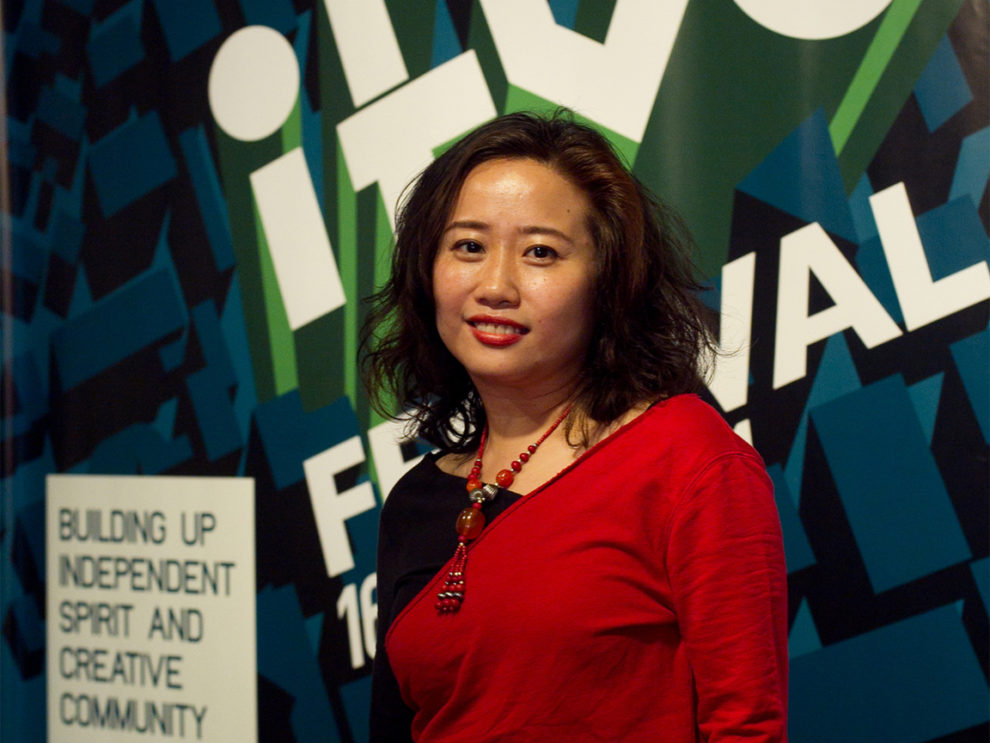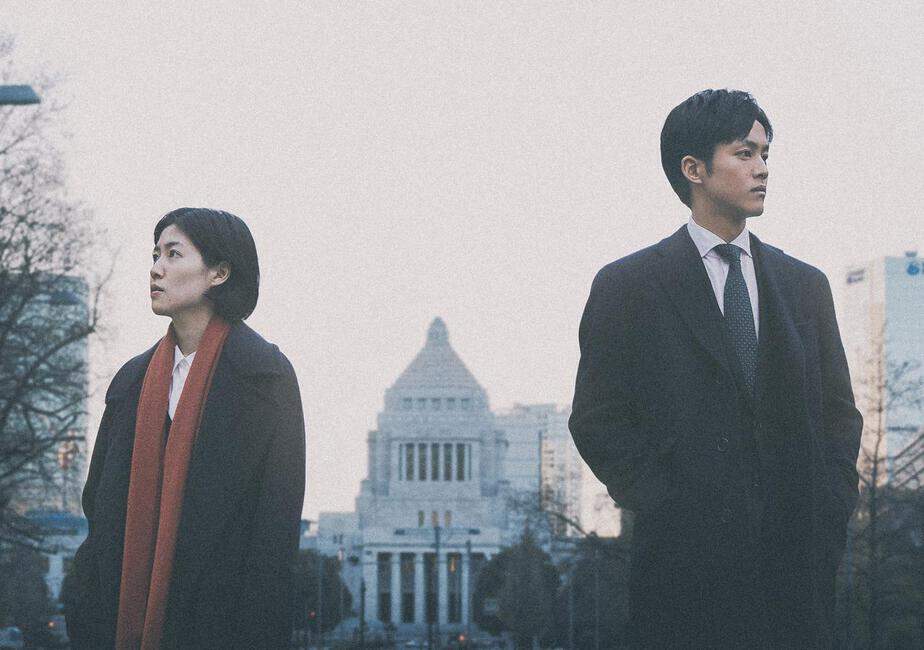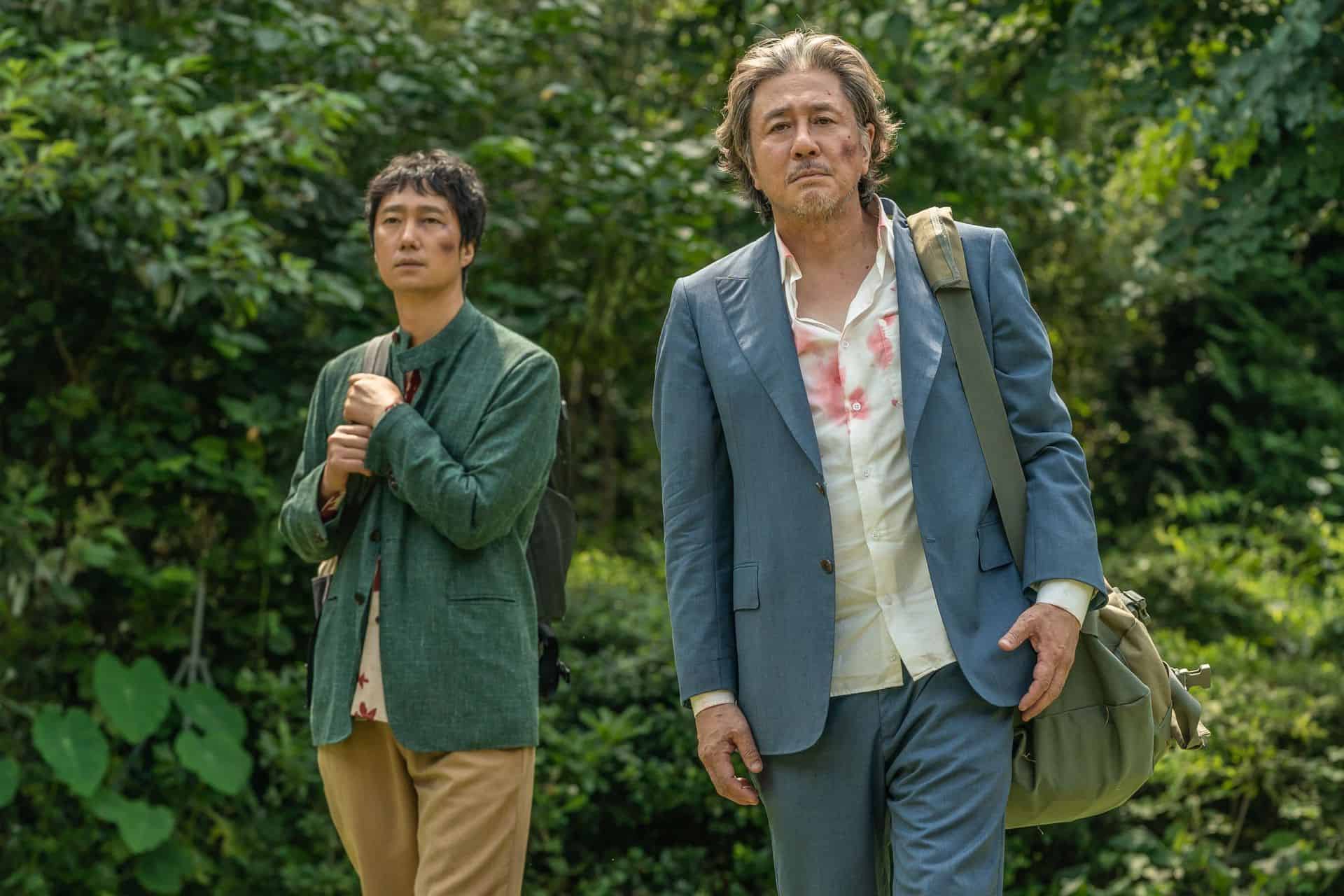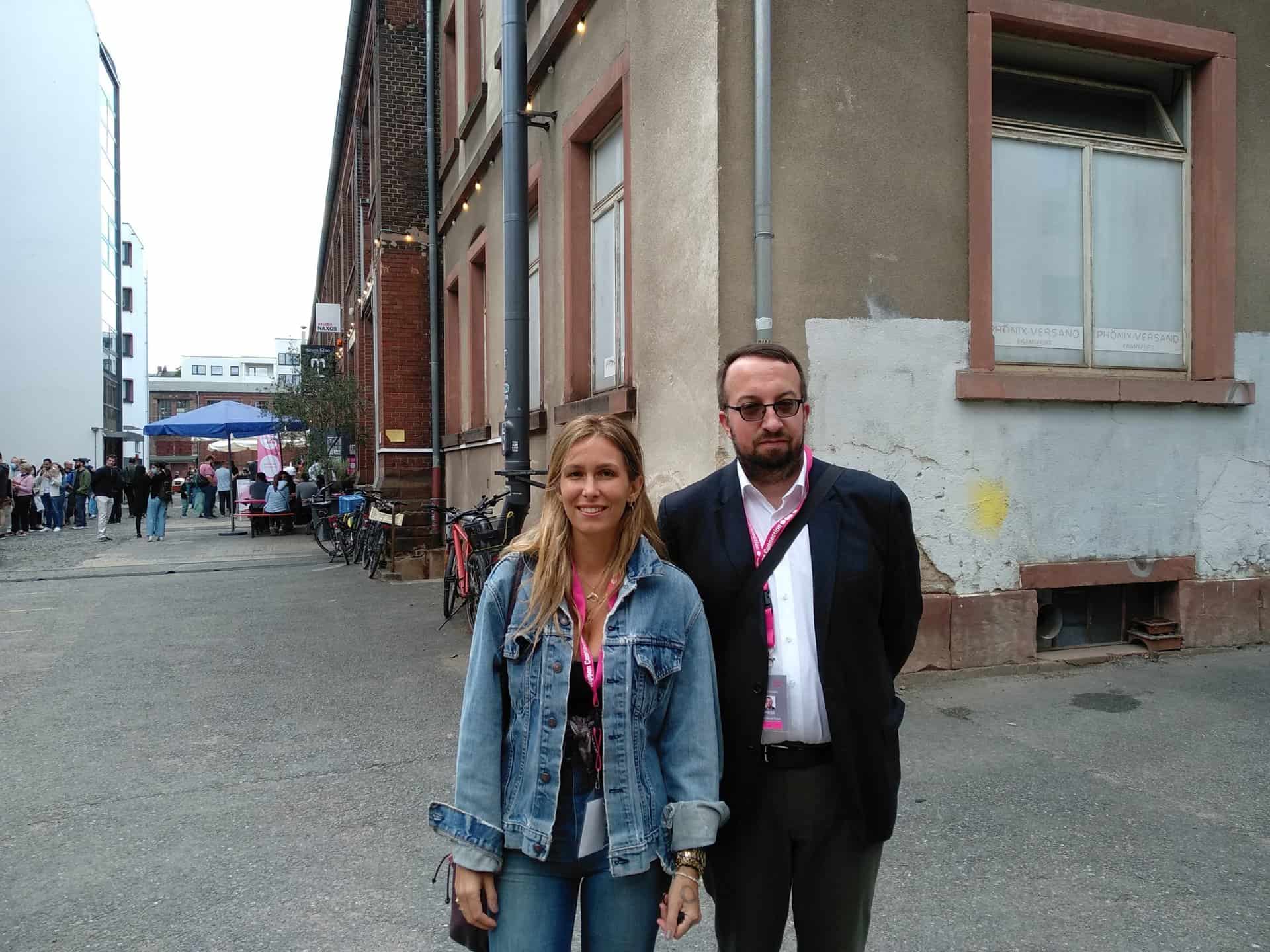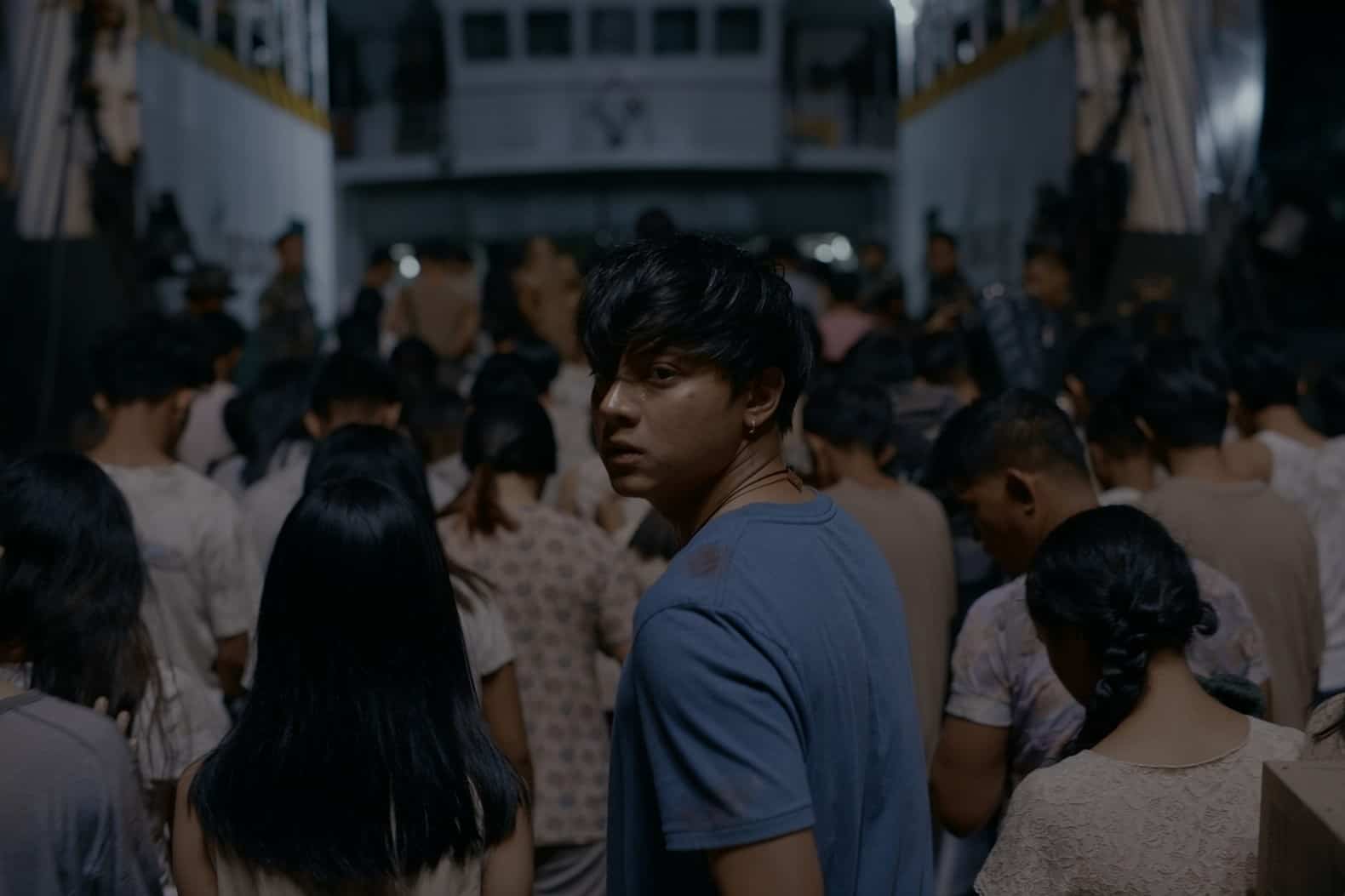Teresa Kwong is the programme director of the Hong Kong Arts Centre. Her producing titles include “Addicted to Love” (dir. Liu Hao, 2010), “Big Blue Lake” and “Flowing Stories” (dir. Tsang Tsui-shan, 2011 and 2014), “Dot 2 Dot” and “Napping Kid” (dir. Amos Why, 2014 and 2018), and “Suk Suk” (dir. Ray Yeung, 2019), which was screened in the Panorama section of the Berlin International Film Festival 2020.
On the occasion of the second edition of the program series, “New Waves, New Shores” in cooperation with the Busan International Film Festival, we speak with her about her work as a producer and how the profession has changed through the years, co-productions, the Hong Kong Arts Centre and her role in it, the particularly program, Hong Kong and Korean cinema, and many other topics
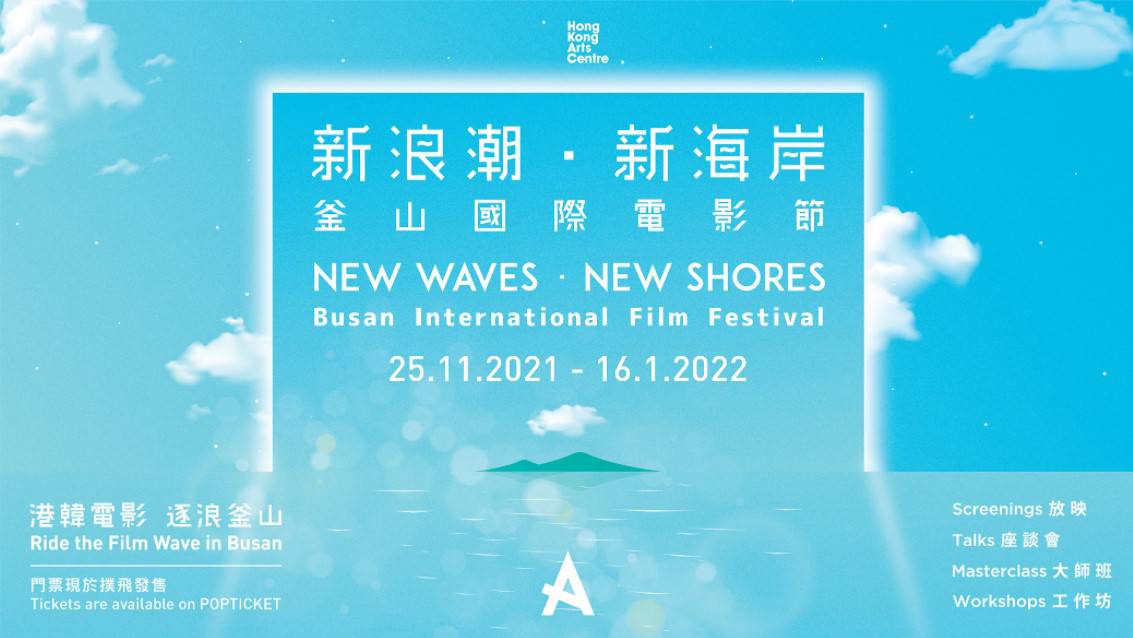
You have been working as a producer for almost a decade now. What are the most significant changes you have witnessed in the field?
I believe there are three major differences, but let me start with how I got into producing first, in order to give you some background on my points. As I mention in my CV, I was leading the ifva (Incubator for Film and Visual Media in Asia), which was a platform for nurturing creative media talent in Hong Kong and Asia. It started as a competition, but gradually, it became an important platform, through workshops and cultural exchange projects, in order to support local and Asian artists, in the areas of short films, animation and media arts, to further their career. I have been the director of ifva since 2004, and for about 10 years. I mention this program, because as I was working there, I realized the importance of artistic development, the fact that artists really need this support, people helping them further their career and sharing the creative journey with them. However, there were not many people interested in that kind of backstage role; at least back in 2005, most people wanted to become artists or filmmakers. The fact, however, that producers are people who are really important in shaping artistic creations and essentially, making things happen was the reason that got me inspired to explore the role of the producer.
In 2005, we had a very significant cultural phenomenon and that is the emergence of YouTube as a very popular platform. People started thinking that video could become an important marketing platform to promote their works. So, at the time, some corporations approached us in ifva, in order to recommend some new talent that could shoot videos about their companies. Therefore, I started thinking that maybe we could be the middleman, not just introducing young talents to corporations, but maybe play an important role as producers, finding opportunities for these young artists and to coach them, supervising the whole project, to make sure they can deliver their video on time and on schedule. The corporations felt very secure when they were working with an institution like us, and that gave us the chance to cooperate with a number of companies, including Greenpeace, Google and also MTR, a Hong Kong company that is in charge of the subway, who commissioned our young artists to create a short film to promote them. That was the first time I functioned as a producer, for this kind of short films, and realized that there is a role for us to play.
Around 2006, I was invited by Jessey Tsang to participate in her own short film and then next year, I was granted a fellowship by the Asian Cultural Council. Furthermore, another mainland filmmaker, Liu Hao, approached me to help him with his project, “Addicted to Love”, to be his producer essentially, also because he could not speak English. That was my first step into the role of producer. After we got the Asian Cinema Fund of the Busan International Film Festival in 2007, we managed to get it into Sundance Screenwriters Lab, and I helped him put everything in English and also as a translator. My experience in Sundance, where I stayed for two weeks, one for the Lab and one to attend the festival, was an eye-opener, particularly because I witnessed how an institution like that uses its network and resources to help filmmakers move their project step-by-step, from an idea to an actual film.
As I helped Liu Hao create the film from zero in reality, I also tried to select funding from all over the world. Furthermore, I attended a workshop run by the Three Continents Festival in Nantes, where I learnt about the second aspect that has truly changed through my years in the field, which is co-production, where people from different countries will get together and pull in different resources in order to come up with a film. Back in 2007, this was a very new idea, but now more and more people are getting into the notion.
The third difference is that in the last 15 years, due to the emergence of digital technology, which resulted in filmmaking becoming much easier, we have way more new talents emerging and a lot more possibilities.
I understand that co-productions work financially, but, in your opinion, how do they work artistically? Because quite often, we get films that, although Asian in their base, essentially look more like European ones.
I have completed 7 feature films in the last 15 years as a producer, and among them, two could be referred to as co-productions. The first one is the one I already mentioned, “Addicted to Love”, for which we managed to apply for a lot of overseas funding, because for those countries, China was still a developing country and all these foundations considered supporting a Chinese filmmaker as their mission. We managed to get funding from the US and Switzerland, but the whole project is still very much a Chinese production, since it was shot in Beijing, the crew members were from China, and the story is about a Chinese retiree who lives alone and has Alzheimer's. Essentially, in this case, we took Western money, to make an Asian film, as in your words.
The fourth project I was involved in, back in 2014, was a feature documentary titled “Flowing Stories”. It is about a village in Hong Kong, where a lot of inhabitants have migrated to Europe, and explores the concepts of family and home. Half of the project had to be shot in Europe, as we followed various individuals who had migrated to France and England. During the process, we got the project into a film market in Paris, where we managed to engage a French co-producer as well, 24images. Because of them, we managed to get money from the CNC and also some regional funds, which we used to shoot in Europe. It was very sensible to get French funding because we were shooting in the country, but frankly speaking, due to some requirements as to having the post-production done in France and paying the taxes for the French professionals working with us, half of the funding we received went back to the French government. It really depends on the project; co-production is not the solution to everything, because it is not easy money. To get back to your question, because the movie is a story originally from Hong Kong but also including elements taking place in Europe, does not mean, as you said, that it has become a European movie because at its core, it is still an Asian story.
Can you give me some details about your involvement in “Suk Suk”?

I knew Ray Yeung for a long time but “Suk Suk” was the first project we worked on together. I got involved in the project because of Ray, because I loved the story and also because I know the writer, a sociology professor, since the story is inspired by his book containing an oral history of Hong Kong gay men. I got involved in the project early on, and the thing is, the production was made with Ray's money, through from Ray and his connections. I mostly helped in consolidating the project and to cast the film. It was the first Chinese-speaking film for him, since he lived abroad for a long time and he did not have any contacts in Hong Kong, so I helped him localize the movie, find the crew etc.I was involved in its premiere screenings in Busan, Golden Horse and Berlinale, plus liaised with the distributors in Hong Kong and Taiwan. Essentially, I was one of the producers, alongside Michael J. Werner, Sandy Yip, and Chowee Leow
Can you give me some more info about the Hong Kong Arts Centre and your role in it?
The Arts Centre was founded in 1977 and we are a non-profit, independent institution. Our mission is to promote contemporary art and artists in Hong Kong. We are a multi-arts centre, so our programme includes media arts, visual arts, performing arts, film and video arts, while we also have an education branch as well. At first, I started as a film programmer, because we have a cinema in the Arts Centre, and my role is helping to plan our film programming there. After five years, I realized I was more interested in exploring the possibility of cinema. because I believe cinema is not restricted to film within a cinema context. So later on, also with my role in ifva, what I tried to initiate is to explore the possibilities of artistic expression, starting with shorts, animation and media art. So gradually, I got involved with various artists and the process of making art. Five years ago, I was promoted to Programme Director. My scope of work is not restricted to filmic media, but also includes exhibitions, performance and so forth. My most recent interest is exploring the interdisciplinary of various art forms and encouraging the dialogue between different art forms.
Can you tell me a bit more about your latest program in cooperation with the Busan International Film Festival, “New Waves New Shores”?
We launched this program series “New Waves, New Shores” two years ago, with Clarence Tsui, who is now the director of Broadway Cinematheque in Hong Kong, but at the time, he was working with us on a freelance basis, as the curator of the first edition of this program. His first job with us was about the 50th anniversary of the Directors' Fortnight parallel section of Cannes, which celebrates the filmmakers' voices, which is something that coincides with the vision of the Hong Kong Arts Centre, as we see ourselves an incubator for artists. That is why we accepted his proposal for the first edition of New Waves, New Shores, to focus on Directors' Fortnight. I think this was a very interesting program, because it examined the role of the festival, which is not restricted only to watching films, but also has other functions, like nurturing talent or facilitating the business aspect of cinema. We wanted to explore the possibilities of a film festival nowadays, that is why we launched this series, New Waves, New Shores. And the second time we had the chance to work on this program again, we thought that maybe we could pick up an Asian film festival. The Busan International Film Festival is the first one that came to mind, because they have grown significantly in the last 20 years, not only promoting Korean cinema but also nurturing Asian talent and facilitating business within different regions. We hope to continue this program in the following years and we already have some ideas for the third and fourth edition.
The program features very different styles of movies, from martial arts to art-house ones, therefore I was curious about the criteria of choosing the titles
As you know, we have two curators for this program: Maggie Lee who works for Variety and is a very capable film programmer and Nam Dong-chul, who is the Program Director of BIFF. Just like the program about the Directors' Fortnight we wanted to screen films that, firstly, had screened at BIFF before and, secondly, ones that showed the exchange between the Hong Kong and Korean cinema, because we feel that the films from these two countries have actually influenced each other. In the case of “Five Fingers of Death” for example, it was directed by a Korean filmmaker, Chung Chang-wha, was very popular in Korea at the time, and also influenced a lot of local genre films.
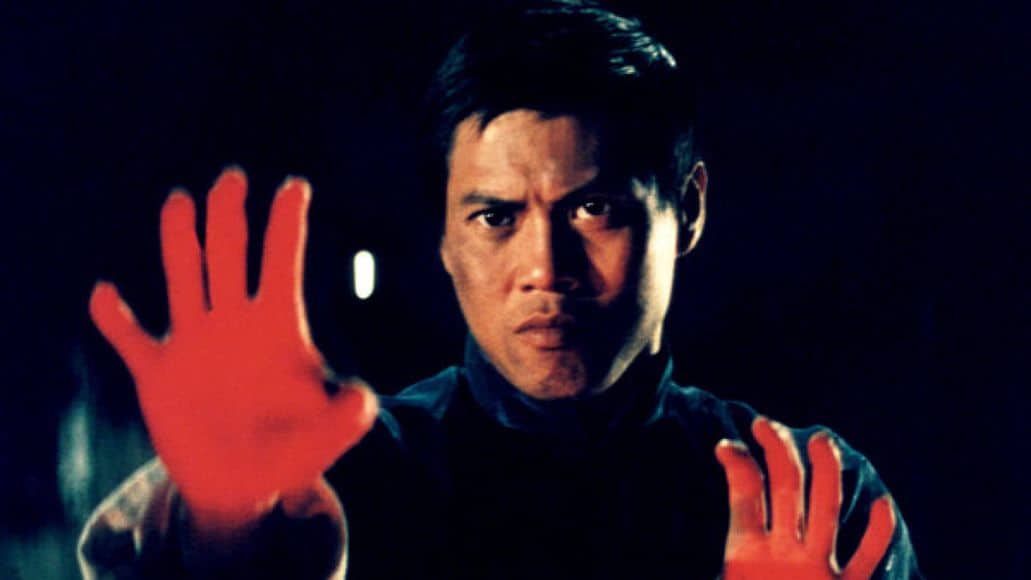
Back in the 80s and 90s, Hong Kong cinema held the top spot among the Asian movie industries, which is now held by Korean cinema. Why do you think this change occurred, what did Hong Kong do wrong and what did Korea do right?
If you look at Korean films in general (not specific films, but as a whole I mean), they look very much like the Hong Kong films of the 80s and 90s which we consider the Golden Age of local cinema. There are many reasons for the current success of Korean cinema, but if you ask me to name them, I would say there are two main ones. Firstly, the Korean governments, since the 90s, have spent a lot of effort and resources in order to nurture local cinema. Furthermore, in the 90s, the Busan International Film Festival emerged and also they founded KOFIC, the Korean Film Council. I would say that the Korean government had a vision, they really realized the importance of soft power, so they invested a lot of money not only in cinema, but also in music and into a star system.
The second reason is the nationalism of Korean people. If you look at the past of Korea, they had a lot of political instability before the 90s, and they started enjoying democracy only in the end of the 80s, beginning of 90s. Korean people really love their country and therefore, they really support the local cultural products, including cinema, which means they already have a big audience base within their country.
These are the main reasons I feel Korean pop culture has been so influential in the last decades. Regarding Hong Kong cinema, I feel that everything is a cycle. Hong Kong cinema was the “rising star” back in the 80s and 90s and it is natural that we had to “take a rest”.
How would you describe the current state of the Hong Kong film industry?
I don't want to repeat what people say when they analyze HK cinema, but I would say that there is a threat but also opportunity. For example, more and more young talents have the chance to make new films, also because a number of more experienced filmmakers have moved to China to make more big-budgeted movies. Furthermore, due to the support of the Hong Kong government, if a filmmaker has a good script, he/she would have more chances to make their first film, than what was the case twenty years ago. Of course, now, there is a question of how sustainable a model can be, where it is easy to make one's first movie but not so much for the second or third one.
A second aspect is that the budgets have become more extreme. For example, for Chinese-Hong Kong co-productions, which are usually commercial films, the minimum budget has to be around US$1.3 million, maybe even 2 million. On the other hand, independent filmmakers in Hong Kong have to keep a really low budget, around US$ 250.000. You can see the difference and unfortunately, there is no middle ground. Furthermore, the threat is about people not going to cinemas that much anymore, preferring to watch movies online, which has made box office results even harder to achieve.
Any future projects you are working on?
I am working with a new filmmaker from Hong Kong, Amos Why, who has shot “Far Far Away” this year, the closing film of the Hong Kong Asian Film Festival. We are working towards distribution at the moment, and also screenings in overseas festivals. The second project I am working on is with Ray Yeung, his second Chinese-speaking film, titled “Today… Tomorrow…” which has already gotten into four project markets, Busan, Milan, Golden Horse and Tokyo. Lastly, I am also collaborating with Jessey Tsang on her first VR project “Chroma 11”. I am really interested in the possibility of this cinema, as much as animation and documentary.


